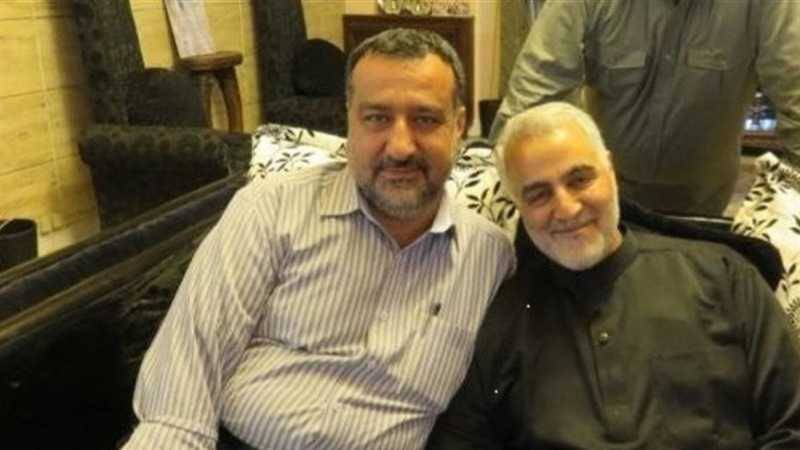The situation in southern Lebanon yesterday was not the same as it was 79 days ago when Hezbollah pressed the Gaza frontline with calibrated operations in range, explosive payloads, and target bank as reported by Al-Rai Kuwait. The past hours brought a series of developments that seemed "shattering" to paths believed to have become constants that prevented the Gaza conflict from becoming an explosive trigger that could ignite the entire region, keeping the Lebanese-Israeli border in a state of controlled explosion linked to a remote control operated by a political-military operations room within the axis of resistance led by Iran. Following the Al-Aqsa flood, Iran initiated a multidimensional field movement that quickly transformed into a ball of fire, fueled by the dynamics of the ground and its successive shifts, raising fears that its destructive effects could extend beyond calculated forecasts.
Perhaps the most dangerous of these developments was Israel's first direct targeting of Iran, albeit outside its territory, through the assassination of prominent Revolutionary Guard commander Reza Mousavi (near Damascus), who is regarded as a companion of General Qassem Soleimani (assassinated in a U.S. strike in Baghdad in 2020) and is described as the representative of the Quds Force in Syria. Since the announcement of Mousavi's assassination and Tehran's warning that Israel would pay the price, a harsh countdown for a strong and smart retaliation began in suitable timing and place. Eyes turned to southern Lebanon, as it could be one of the theaters of revenge, according to expectations in Israel that resulted in precautionary measures, including raising the state of alert along its northern borders.
Hezbollah's announcement in a statement condemning the assassination as a blatant and gross aggression beyond limits amplified Israeli fears of a response outside the boundaries of the established rules of engagement. However, informed circles were cautious about jumping to conclusions that Iran would push Hezbollah into the frontal plane to restore a balance of deterrence regarding elimination operations, recalling the period following Soleimani's assassination when Tehran managed its response according to calculations to avoid slipping into a direct major confrontation with the United States, which did not have its fleets in the Mediterranean as they do today, poised for any crossing of red lines.
These circles observe that any Iranian decision to respond to Mousavi's assassination through Hezbollah is also influenced by the belief that Israel has not deviated from its goal of dragging the United States into a fait accompli, luring it into supporting a military operation against Hezbollah, which is feared to still be searching for justification, which will not be provided. They believe that Iranian response options have become more sensitive and precise. While Iran had coordinated with the Trump administration "to the centimeters" through Baghdad for revenge over Soleimani's elimination by targeting the Ain al-Assad military base in Iraq, any direct response this time against Israel operates under a narrow margin due to the volatile moment in the region.
However, the circles do not rule out a greater activation of the maritime corridor warfare or Iran's initiative to respond through it against an Israeli target, not to mention the possibility of escalating its proxies, including the Houthis, against maritime targets, as well as toward Israel itself. They simultaneously call for monitoring whether Tehran will absorb the first-ever targeting it faced by the United States (on Monday) against factions loyal to it in Iraq (after hours of an attack that led to injuries among three American soldiers), putting the precise strikes under the category of responding to a series of attacks against American crews in Iraq and Syria carried out by Iran-backed militias, including an attack executed by Iran's Hezbollah Brigades and related groups on Erbil airbase.
According to Al-Rai Kuwait, the U.S. push coincided with assessments that no longer exclude the possibility of Washington engaging in strikes on Houthi launch platforms in Yemen, underlining Eric Rosenbach's statement, former chief of staff to the Pentagon during the Obama administration, that a rebellious group is currently pulling the global economy down. The maritime conflict has begun, and the United States has no choice but to fight. All these elements factor into the probabilities facing the region and the Gaza conflict, extending to the southern Lebanon front where fears persist about its entanglement in the volcanic mouth of an Israeli adventure to impose the full implementation of Resolution 1701 and push Hezbollah away from the entire southern Litani or part of it.
Despite the conviction that any daring move by Tel Aviv in this direction to drag the United States into a firefight with Hezbollah would see Israel determine its timing and objectives without considering logistical and military considerations arising from signs of a shortage in Israeli ammunition stockpiles to proceed with the Gaza war, amid reports that concerns in this regard and Washington's request to expedite arms shipments are among the files that Israeli Strategic Affairs Minister Ron Dermer will discuss with officials in the White House and the State Department, risks remain high on the southern front that has not diminished in its escalation of Hezbollah operations as well as Israeli targeting. Yesterday, Hezbollah executed a series of operations, some of which led to injuries among Israelis while targeting the command of the 91st Brigade at the Branit base with appropriate weapons, following reports from Israeli emergency services of four injuries, one of them serious, due to the fall of an anti-tank missile near Iqrit at the border with Lebanon.




